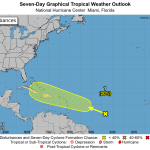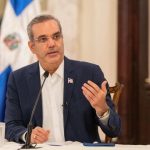(DNO)One of the founders of the Dominica Association of Persons with Disabilities (DAPD) Nathalie Murphy has called for the implementation of certain systems and measures to facilitate better participation in the electoral process.
Murphy who is also the former Executive Director of the DAPD made the statement while addressing a series of consultations on electoral reform held at the State House Conference Center this week. In fact, she said the DAPD focus is ensuring that persons with disability can actively and independently participate in the electoral process on an equal basis with others in Dominica.
“Traditionally persons with disabilities have freely and actively participated in the electoral process in Dominica and …they have always had the opportunity to choose or cast their vote for the candidate of their choice,” she said. “However, we will be the first to admit that certain systems and measures need to be implemented to facilitate better participation in the process and to make the situation better.”
Murphy continued, “In our submission, we used as I said article 29 of the Convention on the Rights of Persons with Disabilities and although I am blind, I know quite a bit of what is contained in that article.”
According to Murphy, article 9 speaks to access to the physical environment and public buildings.
“In our submission, we reference the fact that on polling day certain polling stations are not accessible for persons with disabilities and of course those with other mobility impairments,” she explained. “We also mentioned the fact that information should be made available in usable and accessible format to cater to the needs of persons who are speech and hearing-impaired…and deliver technology that can facilitate the various types of disabilities and to ensure that no one is left behind.”
Furthermore, Murphy pointed out that in the case of persons who are blind and visually impaired the DAPD is specifically concerned that in law presently, provisions are made for members to cast their vote provided that he or she brings along a friend or relative/family member.
“We are in modern times and we as blind people think that the business of secret ballots is very important to us,” she stated. “While we as blind people, we trust the people who accompany us to the polling station, but then you never know. So, we are saying some measures should be instituted to ensure that persons who are blind and visually impaired can cast their votes secretly and privately.”
The DAPD also suggested that some form of state mechanism should be introduced to assist with the transportation of persons to the polling station to cast their vote.
“We are not talking about transportation [of persons living overseas…],” Murphy remarked. “Ensure that transportation is managed by the state, some kind of mechanism be initiated to assist persons with disabilities wanting to go to cast their vote so that they can do that freely and independently.”
Meanwhile, Murphy is recommending that the term “incapacitated voter” should be removed/ abolished from the electoral reform report.
“In recent times we have been hearing all kinds of terms, we have heard terms about differently abled, we have been hearing he has a challenge, he has a handicap,” she noted. “Words matter and persons with disabilities take strong offense when they are referred to adjectives other than what is provided in the convention on the rights of persons with disabilities. “In Justice [Dennis] Byron’s report the electoral act speaks of incapacitated voter…” Murphy explained. “We are recommending that this term be abolished…”
DAPD was established on October 26, 1983, and is presently celebrating 38 years in existence.
The association is devoted to improving the status of persons with disabilities and ensuring that their fundamental rights and freedoms are promoted and protected. It is committed to being an active partner with regional and international organizations, firms, institutions, and bodies that share its mission and vision.










